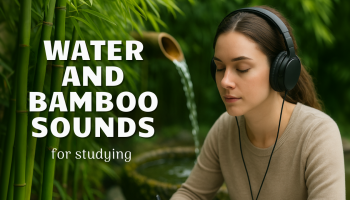The best way to learn Spanish
We have prepared a movie with a staged hotel scene that will help you learn the Spanish language. Thanks to the fact that we have written captions, it will be much easier for you to understand and learn phrases that you can use while traveling. These are very useful phrases that will help you communicate in Spain. Our Spanish travel lesson is perfect for everyone who wants to travel. Spain is a very popular holiday destination, so Spanish vocabulary lessons will be useful to many people. If you are going on vacation to Spain and need to know the most common phrases used in hotels, learn them with us!
Spanish travel lesson with subtitles
Thanks to the subtitles in our movie you will be able to understand better what the characters of the movie say, but also learn the pronunciation of the words. Checking in at a hotel in Spanish, as well as checking out and talking about meals will no longer be a problem for you. Get in on our video and learn foreign languages effectively!
Below you will find a translation of the phrases you’ll hear in the video:
Scene 1:
- Hello, have you got any free rooms? I’d like to reserve a double. (Buenos días, ¿tenéis habitaciones libres? Me gustaría reservar una habitación double).
- Hi, sure. I can suggest a room with a double bed, balcony and view of the sea. (Buenos días, puedo proponerle una habitación con cama doble, balcón y vistas al mar).
- What’s included in the price? (¿Qué incluye el precio del alojamiento).
- The price includes breakfast and half-board, as well as underground parking. (El alojamiento incluye desayuno y almuerzo-cena, así como aparcamiento subterráneo).
- And the room has air-conditioning, right? (¿Entiendo que la habitación tiene aire acondicionado).
- That’s right, our entire hotel is air-conditioned. (Sí, nuestro hotel tiene aire acondicionado).
- OK, in that case I’d like to reserve the room for two nights. (De acuerdo, quiero reservar una habitación para dos noches.
- Of course. Can I see some identification? (Por supuesto. ¿Podría enseñarme su documento de identidad).
- Here you are. (Aquí tiene).
- Thanks. (Gracias).
- What time is check-out? (¿Hasta qué hora debo abandonar la habitación?)
- You can check out until noon. Breakfast is served from 7 to 11. And here is the key to your room. It’s number 4. Have a nice stay. (Hasta las 12. El desayuno se sirve de 7 a 11. Aquí tiene la llave de su habitación. Es la habitación número 4. Le deseo una agradable estancia).
- Thank you. I also wanted to ask what kind of breakfast you serve? Can I order breakfast from room service? (Gracias. ¿Podría decirme en qué forma se sirve el desayuno? ¿Podrían llevármelo a mi habitación?)
- Breakfast is served as a buffet. Unfortunately, we can only serve it in the restaurant. (El desayuno es un bufet libre, desafortunadamente, solo lo servimos en el restaurants).
- I see. Where is the elevator? (Entiendo. ¿Dónde está el ascensor?)
- To the left of the stairs. (A la izquierda de las escaleras).
- Thank you. (Gracias).
Scene 2:
- Excuse me, I’m having a problem. There isn’t any hot water. (Disculpe, tengo un problems. No hay agua caliente).
- I’ll try to find out what happened. Is there anything else I can help with? (Intentaré comprobar qué ha pasado. ¿Puedo ayudarle en algo más?)
- Yes, could you give me the Wi-Fi password? (Sí, me gustaría pedirle la clave del wifi).
- The Wi-Fi password is in your room, on the table. (La clave de internet se encuentra en la mesa de su habitación).
- OK, thanks. One more question. How long is the hotel bar open? (De acuerdo, gracias. Ah, y una cosa más. ¿Hasta qué hora está abierto el bar del hotel?)
- Until midnight. You can also use the mini-bar in your room. (Hasta las 24. También puede utilizar el mueble bar).
- Thank you very much. (Muchas gracias).
Scene 3:
- I’d like to check out. (Me gustaría abandonar el hotel).
- Yes, of course. Did you enjoy your stay at our hotel? (Por supuesto. ¿Cómo ha pasado su estancia en nuestro hotel?)
- Everything was OK. (Todo correcto, sin problems).
- I‘m glad. Would you like to pay by credit card or in cash? (Me alegro. ¿Va a pagar con tarjeta o en efectivo?)
- Cash. (Efectivo).
- Thank you. Here is your bill. Do you need help with your luggage? (Gracias. Aquí tiene la cuenta. ¿Necesita ayuda con su maleta?)
- No thanks, I’ll manage. Goodbye. (No gracias, puedo solo. ¡Hasta la vista!)
- Bye! (¡Hasta la vista!)
For more, visit our YouTube channel and see also our film with all-night lessons – sleep and learn German.





